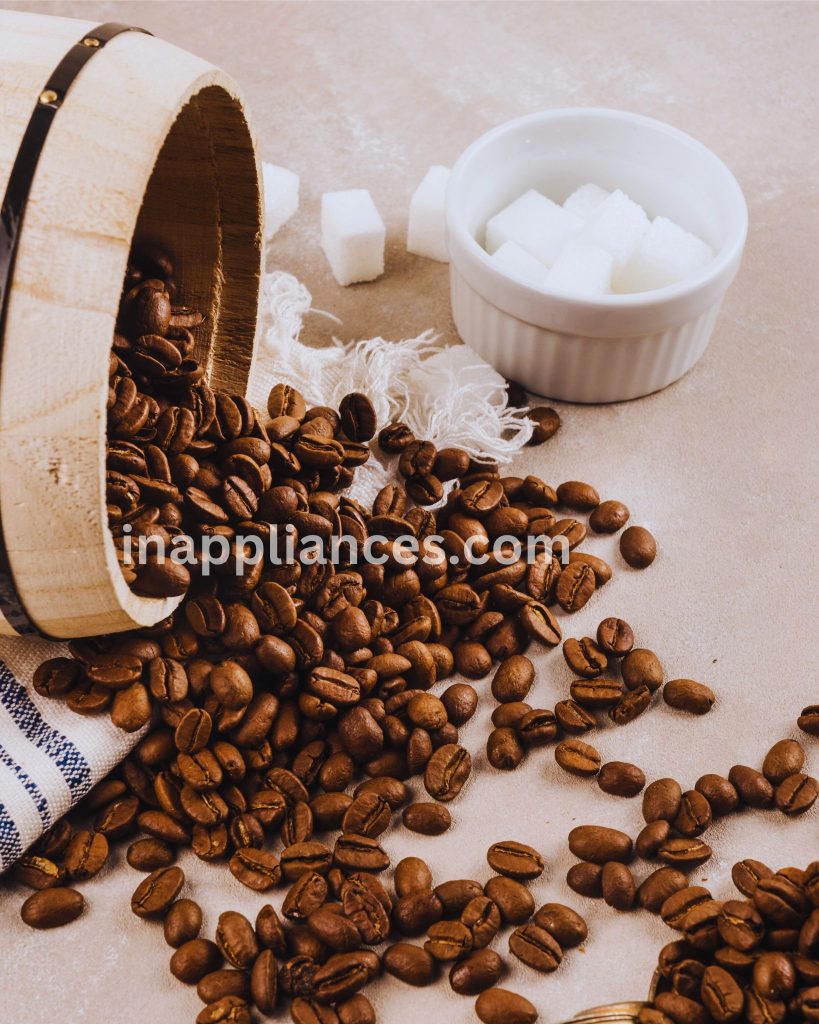Are you a coffee lover looking for an easy and convenient way to make your morning cup? Ever wanted to make your favorite cup of instant coffee but don’t have access to an electric kettle? Fear not, for there is now a way you can make delicious instant coffee with just cold water! When selecting the right brewing method, understanding which product works best, and learning the most effective techniques, anyone can make tasty cups of instant brew in no time at all. Read on as we explore how you can make great-tasting Instant Coffee with Cold Water!
1.Understand the Different Ways to Make Coffee
The two main types of coffee are brewed and instant. Brewed coffee requires hot water, while instant coffee is made with cold water. To make brewed coffee, you need to heat the water to a specific temperature that brings out the flavor in the beans. The process takes time and requires special equipment like a French press or an espresso machine. Instant coffee, on the other hand, is made with cold water and does not require any special equipment.
2.Essential Tips for Making Instant Coffee with Cold Water
When making instant coffee with cold water, there are a few tips that can help make the process more successful. First, it’s important to use quality ingredients. Investing in good-quality instant coffee will give you better flavor and texture than using lower-grade ingredients. Be sure to get an appropriate amount of coffee for your desired strength; usually, this means adding two teaspoons of instant coffee per cup.
Second, it’s important to use cold water when making instant coffee with cold water. This prevents the coffee from becoming overly bitter and helps create a smoother, more consistent flavor. For optimal results, if at all possible, use pure or filtering water.
Third, try using a spoon or whisk when mixing the instant coffee and cold water together. This helps evenly distribute the small granules of instant coffee, resulting in a better-tasting cup. For best results, mix for about one minute and then allow the mixture to sit for a few minutes before consuming.
Finally, stirring in a bit of cream or sugar can help improve the flavor of your instant coffee with cold water. This is especially important if you’re not a fan of the strong, bitter flavor of black coffee. You can also try adding some spices such as cinnamon, nutmeg, or cardamom for an interesting twist.
3.Different Types of Instant Coffee that Work Best with Cold Water
With the popularity of cold brew coffee, more and more people are looking for ways to make great tasting iced coffees without the long wait. Instant coffee is a great option because it can be made in seconds with cold water. But not all instant coffees will work equally well when making iced coffee. For best results, you should look for those that are specifically designed to be used with cold water.
One type of instant coffee is freeze-dried coffee. This process involves freezing the coffee and then removing almost all of the moisture, leaving behind just the essential oils and flavors. The result is a powdery substance that will dissolve quickly in cold water, resulting in a rich, flavorful cup of iced coffee.
Another type of instant coffee is the spray-dried variety. This process involves spraying a hot, pressurized liquid onto a bed of coffee grounds. Smaller than coffee that is freeze-dried, what results are more easily dissolved in cold water.
Finally, there are instant espresso coffees that have been specifically designed to be made with cold water. These are a good choice if you want a strong, intense iced coffee. They typically have added milk or creamers to give them a richer, smoother taste.
4.Introducing the Basics of Cold Brewing Coffee
Cold brewing coffee is a method which has become very popular in recent years. Cold brewed coffee can be made without the traditional heat and agitation of hot brewing; instead, this process relies solely on time. Coffee grounds are steeped in cold or room temperature water for an extended period of time—usually several hours or overnight—which produces a more mellow and less acidic cup of coffee.
Cold brewing has a few key advantages over hot-brewed coffee: it’s easier, faster, and the resulting brew is more concentrated. All you need to make cold brewed coffee is ground beans and cold water. Although you can use any type of bean for this process, light or medium roasts are often recommended. The colder the water, the longer it will take for the coffee grounds to fully dissolve and release their flavor.
So is instant coffee a viable option when it comes to cold brewing? Unfortunately, instant coffee doesn’t work well with this method because it should be brewed with hot water in order to activate its flavor. Instant coffee is composed of pre-brewed, freeze-dried particles which require hot water to dissolve and impart the full flavor of the coffee. If you were to try making instant coffee with cold water, it wouldn’t have much taste at all.
5.Understanding How to Make Cold Brewed Coffee with Cold Water
Understanding how to make cold brewed coffee with cold water is essential for anyone looking to enjoy a rich, flavorful cup of iced java. Making instant coffee with cold water requires some patience and technique, but the result can be worth it.
When making any kind of cold brew, one should always start with quality beans that have been freshly ground. Grinding your own beans will help to ensure that you get the best flavor out of them possible. If grinding at home isn’t an option, make sure to buy pre-ground beans from a trusted source.
Identifying What Kinds of Coffee Beans are Best for Cold Brewing

Although you cannot make instant coffee cold water, there are certain types of coffee that work better for cold brewing than others. Generally, a-dark roast works best as it has a good balance between acidity and body.astier coffees tend to bring out more acidity, while lighter roasts will be too bland. Whole bean coffee is also better for cold brewing as the grind size does not really matter as much and it will keep fresher for longer.
Cold brew coffee can be made in two ways, either manually or with a machine. For manual brewing, you need to coarsely grind your beans and place them into a container with filtered water. Then leave your mixture to steep for 12-14 hours in the refrigerator. Afterward, you need to strain the grounds to remove any sediment and then enjoy your cold brew coffee!
When it comes to machine brewing, this method will require an additional purchase of a cold brew coffee maker. This device is designed to steep your beans and water automatically. so you do not have to worry about the timing or any of the steps involved in manual brewing.
6.Why Instant Coffee Might Work Better with Cold Water
The use of cold water with instant may be preferable for a few reasons. There is less of a “over-infused” flavour because the granules need more time to release their flavor at the lower temperatures. The particles will take longer to dissolve in cold water, so the beverage will be smoother and less bitter. Last but not least, using cold water while brewing coffee avoids any “gritty” texture that may result from using hot water, as well as helping to more uniformly bring out the flavor.
Overall, cold water is often better for instant coffee than hot water. It takes longer but it can be worth the wait if you’re looking for a smoother and less bitter taste.A cold water test can be made at least once to see what kind of effect it made. Some people might prefer to just stick with their chosen temperature.
7.Exploring the Benefits and Drawbacks of Cold Brewing
When making instant coffee with cold water, it’s important to consider the benefits and drawbacks of cold brewing. Cold brews are generally smoother in flavor than those made with hot water because they extract fewer oils and acids from the beans. They also have less bitterness and acidity, although this can be a downside if you like your coffee strong or acidic. Another benefit of cold brewing is that it’s quicker, with steeping times as short as five minutes.
One major downside to using cold water for instant coffee is that the flavor may be weaker than if you used hot water. Additionally, the texture can be less creamy and more watery than usual. Some people also don’t enjoy the cold temperature of the coffee, which can be unappealing if you’re trying to enjoy a hot. Finally, cold brewed coffee often has a shorter shelf life than traditional hot brewed varieties.
8.Benefits of Making Coffee with Cold Water
One of the main benefits of making coffee with cold water is that it takes much less time than other methods. This is because the grounds do not need to be heated up, so all you have to do is mix together the ingredients and let them sit for a few minutes before drinking. Additionally, using cold water eliminates any risk of over-extraction, which can happen when using hot water. Finally, making coffee with cold water results in a much smoother cup of java than one made with boiling water.
Another benefit of coffee with cold water is that it preserves the flavor of the grounds better. This is because the grounds keep their natural flavor and scent much better as they fail to be boiled.
Finally, making coffee with cold water is a great way to save money. Compared to using hot water or an espresso machine, using cold water does not require the additional of electricity or gas. Plus, it takes less time so you can enjoy your cup of coffee without having to wait for it to heat up.
9.Why Instant Coffee Might Work Better with Cold Water
There a few reasons why instant coffee might work better with cold water. First, cold water is less likely to contain impurities that could affect the flavor of your coffee. Second, it takes less time for the water and coffee mixture to cool down when using colder water, meaning you can enjoy your drink sooner. Finally, adding hot or boiling water to the coffee can cause it to burn, making it taste bitter or sour.
For these reasons, many people believe that using cold water is the best way to make instant coffee. However, it’s important to note that there are still some potential drawbacks to this method. For example, the coffee won’t be as strong and won’t contain as much flavor when made with cold water. Additionally, it may not dissolve completely in the liquid, resulting in a grainy consistency.
conclusion
it is possible to make instant coffee with cold water but the resulting beverage may not have the same flavor. profile as traditionally brewed hot coffee. It is important to use high quality instant coffee with cold water for the best taste results, and also to ensure that all of the flavor compounds are properly extracted the granules. Additionally, some cream or sugar can help reduce bitterness and bring out any hidden flavors in the instant coffee. Ultimately, it is up to your personal preference as to whether or not you make instant coffee with cold water. Experiment to see what works best for your taste buds!
While brewing instant coffee with cold water often is sufficient, it is always best to brew hot coffee. No matter how you decide to make your cup of Joe, enjoy its flavor and savor the moment. Cheers!
FAQs
A: Cold brewed instant coffee is often smoother and has a less intense flavor than hot brewed coffee. However, cold brewed coffee often fails to fully extract flavors from the grounds and may have a lesser flavor. It is ultimately up to your personal preference which type you prefer!
A: It usually takes a few minutes for the coffee granules to dissolve in cold water. However, this can vary depending on the type and strength of the coffee you are using. You should stir or shake your cup occasionally while the granules dissolve.
A: Yes! Adding milk or cream can help reduce bitterness and enhance the flavor of your coffee. It can also help balance out any acidic notes in the beverage.

